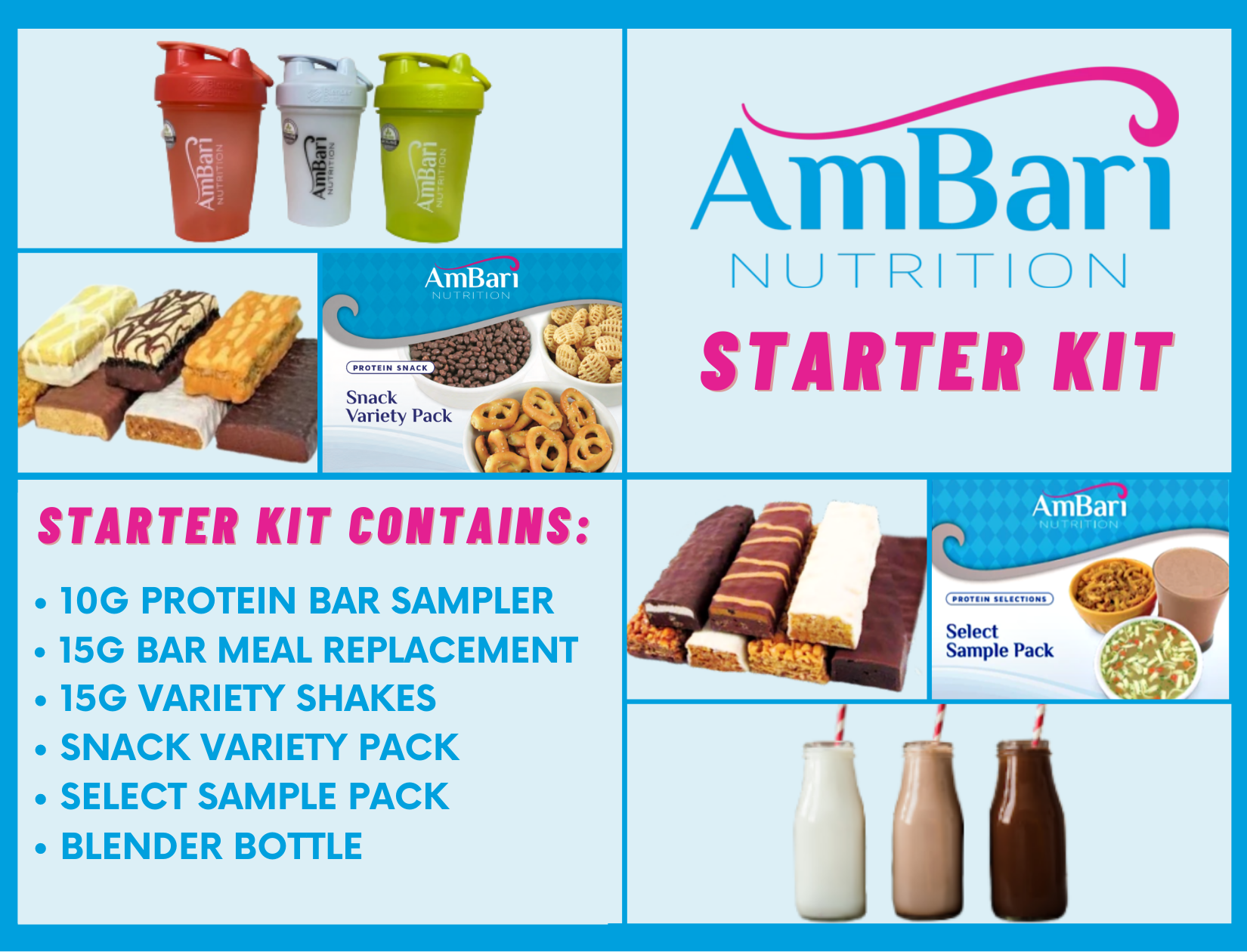Menu
Your cart is empty
Looks like you haven't added anything to your cart yet

Best Meal Replacement Shakes for Diabetics
Meal Replacement Shakes for Diabetics
Meal-replacement shakes just for diabetics are key to controlling blood sugar levels. These shakes have the ideal mix of protein, carbs, and fiber. The combo helps release glucose slowly, blocking unhealthy spikes. They can also help with digestive issues and weight control.
Remember: Not all meal replacements are right for diabetics! Pick products designed for their nutritional needs. These usually have low glycemic index. So, no sudden jumps in sugar levels.
When choosing a shake, think about flavor and texture. Do you like sweet flavors like vanilla or chocolate? Or earthy ones like mushroom or green tea?
Jackie W., a long-time diabetic, found meal replacement shakes a lifesaver. "I used to miss meals and eat too much later," she said. "But now I carry these shakes with me and my sugar stays steady until mealtime." Add a little adventure to your diet - with meal replacement shakes for diabetics!
See Also:
Benefits of Meal Replacement Shakes for Diabetics
Meal Replacement Shakes for Diabetics: A Professional Look at Their Benefits
Diabetes is a serious health condition that affects millions of people around the world, and managing it can be challenging. Fortunately, meal replacement shakes can be a valuable addition to a diabetic's diet, helping them maintain their blood sugar levels and reduce the risk of complications. Here are some benefits of these shakes:
- Controlled Blood Sugar: Meal replacement shakes can have a low glycemic index, which means they can help stabilize to normal blood sugar levels and reduce insulin spikes.
- Weight Management: Weight management is an important part of diabetes control since excess weight can increase the risk of complications. Meal replacement shakes can help control calorie intake and promote weight loss.
- Convenience: Diabetic meal replacement shakes are easy to prepare and can be taken on-the-go, making them a convenient option for busy individuals who don't have time for regular meals.
- Nutrient-dense: Many meal replacement shakes are nutritionally balanced and contain a mix of carbohydrates, protein, and healthy fats, which can help keep diabetics healthy and ensure they're getting the nutrients they need.
- Improve Quality of Life: By regulating blood sugar, promoting weight loss, and providing essential nutrients, diabetic meal replacement shakes can improve overall health and quality of life.
In addition to these benefits, it's worth noting that not all diabetic meal replacement shakes are created equal, and finding the right one for specific needs is important. Some shakes may contain more sugar than others, which can cause blood sugar to spike, so it's important to read labels carefully and choose ones with the proper balance of ingredients.
Diabetic meal replacement shakes have been a part of diabetes management for many years. The first commercially available meal replacement shakes were introduced in the 1970s, and since then, the market has grown significantly. Today, there are many options available, and the advancement of technology has led to the development of shakes that are even more effective in managing blood sugar and promoting overall health.
Weight Management Through Meal Replacement Shakes
Meal replacement shakes offer a practical and nutritious way to manage weight. Especially for diabetics, these provide low GI carbs to keep sugar levels under control.
Shakes often provide a higher nutritional value than traditional meals, giving you necessary nutrients while cutting calories. You can get pre-made shakes or make your own recipes.
Plus, these shakes are convenient and help you compare dietary objectives with results, making it simpler to reach your weight loss goals.
Studies have proven that meal replacements are an effective intervention approach in weight loss. Overweight individuals showed a decrease in body fat mass when they included meal replacements in their diets compared to when they just did calorie restriction.
Who needs a sugar daddy when you can have a meal replacement shake that controls your blood sugar?
Blood Sugar Control Through Meal Replacement Shakes

Meal replacement shakes can be great for diabetics! Replace 1 or 2 meals with one of these shakes to control your carbs and calories, without missing out on important nutrients. They're specially formulated to keep blood sugar levels steady, with low carbs that won't cause spikes. Plus, they make it easy to stick to a healthy diet without cooking or counting calories.
When picking a shake, choose ones that have low added sugars and high protein and fiber. That'll help you feel full longer, and control your cravings.
But remember: Talk to a healthcare pro before using meal replacement shakes. They may interact with meds, or have unexpected side effects.
Nutritional Requirements for Meal Replacement Shakes for Diabetics
Diabetics require specific nutritional needs in meal replacement shakes, such as a low-carbohydrate and high-protein formula. These shakes can assist in managing blood sugar levels, but it is important to choose a shake with the appropriate nutrient balance.
| Protein | Carbohydrates | Fiber | Fat | Calories |
|---|---|---|---|---|
| At least 15g per serving | Less than 30g per serving | At least 3g per serving | 5g or less per serving | Between 200-300 per serving |
Other important considerations for diabetics using meal replacement shakes are the sources of fat and carbohydrates, as well as the presence of added sugars. Choosing shakes with healthy fats, such as those found in nuts and seeds, and avoiding added sugars can promote better blood sugar control.
A study in the Diabetes Journal found that meal replacement shakes were an effective tool in managing blood sugar levels in patients with type 2 diabetes along with also reducing body weight. Looking for a shake with actual substance? Check the label for carbs, protein and fat - you don't want to end up with a drinkable salad dressing.
Carbohydrate, Protein and Fat Content in Meal Replacement Shakes
Ensuring proper nutrition for diabetics is imperative. Macronutrients like carbohydrates, proteins and fats must be considered when selecting meal replacement shakes. See the table below for info on popular brands.
| Brand | Carbohydrates (g) | Proteins (g) | Fats (g) |
|---|---|---|---|
 |
7 | 15 | 1.5 |

|
11 | 27 | 2.5 |
| 7 | 20 | 3 | |
 |
23 | 10 | 7 |
 |
12 | 27 | 5 |
 |
10 | 20 | 5 |
 |
8 | 15 | 1.5 |
Remember to read the labels before you buy! Also, whole foods should be incorporated into meals and diabetic friendly snacks to ensure adequate intake of essential vitamins and minerals.
The American Diabetes Association (ADA) has declared low-calorie sweeteners safe for consumption by people with diabetes.
Fiber content in meal replacement shakes for diabetics
Meal replacement shakes for diabetics need a good amount of fiber. It helps balance blood sugar levels and aids digestion. So, we've made a chart that shows the fiber amount in various meal replacement shake brands for diabetes. It contains: brand name, serving size, and fiber content.
| Brand Name | Serving Size | Fiber |
|---|---|---|
| AmBari Nutrition | 27g | 0 |
| Bariatric Advantage | 44g | 6 |
| ChocoRite | 36g | 5 |
| Glucerna | 8 oz. | 3 |
| New Direction | 52g | 3 |
| Numetra | 41g | 3 |
| Proti-Diet | 27g | 4 |
Surprisingly, certain brands have more fiber, even with smaller servings. This data is crucial for finding the perfect meal replacement shake for diabetics.
A Diabetes Care Journal study in 2017 said that people with type 2 diabetes can benefit from more dietary fiber.
Skip the sugar! Meal replacement shakes for diabetics should be sugar-free or low in sugar.
Ingredients to Avoid in Meal Replacement Shakes for Diabetics
When considering meal replacement shakes for individuals with diabetes, it is important to understand the ingredients that must be avoided to maintain healthy blood sugar levels.
Some of the ingredients that must be avoided in meal replacement shakes for individuals with diabetes include high-fructose corn syrup, refined sugars, trans fats and hydrogenated oils. These ingredients can lead to high blood sugar levels and long-term complications.
When choosing the right meal replacement shake, it is essential to look for options that contain low glycemic index ingredients such as whey protein, nuts, seeds, and fiber. These ingredients can help regulate blood sugar levels and promote a healthy lifestyle.
A patient with type-2 diabetes in her 40s was advised by her doctor to replace her mid-day meal with a meal replacement shake to regulate her blood sugar levels. After a few weeks of trying different options, she found a shake that contained low glycemic ingredients and helped her maintain her blood sugar levels while keeping her satiated.
High Sugar Content in Meal Replacement Shakes
People with diabetes must avoid meal replacement shakes with high sugar content. Ingredients such as corn syrup, fructose and sucrose can lead to spikes in blood sugar levels. Stevia and monk fruit extract are better, low glycemic alternatives. Before buying, read labels and nutrition values.
Artificial sweeteners like aspartame and saccharin should also be avoided. They can increase insulin resistance. Natural sweeteners like agave nectar or honey (in moderation) are better options for regulating blood glucose levels.
Be careful when buying products labelled "diabetic-friendly". Do your research and only buy from reliable sources. In 2019, a popular brand of meal replacement shakes was accused of mislabelling their product "healthy" and "diabetic-friendly", despite containing large amounts of sugar. This case shows how important it is to read labels and do independent research.
Artificial Sweeteners and Additives in Meal Replacement Shakes
Meal replacement shakes for diabetics should be free of harmful ingredients like artificial sweeteners and additives. These can affect blood sugar, insulin levels, and overall health. So, it's essential to check the shake contents before consuming them.
Let's take a look at the following table:
| Name of Ingredient | Effect on Diabetic Patients |
|---|---|
| High-Fructose Corn Syrup | Increases insulin resistance and glucose levels |
| Artificial Sweeteners | May cause weight gain, high blood pressure & liver disease |
| Trans Fats | Raises bad cholesterol, while lowering good cholesterol |
It's clear from the table that certain ingredients in meal replacement shakes can be damaging for diabetics. High-fructose corn syrup affects insulin resistance and raises glucose levels, while artificial sweeteners may lead to weight gain and other ailments. Trans fats present in some shakes increase bad cholesterol while decreasing the good.
As a diabetic, it's important to avoid such harmful ingredients in meal replacement shakes. Read the labels before buying any such product.
Don't let your health suffer. Take control of your wellness journey and make informed decisions about your diet plan. Consult your healthcare provider or dietician who can guide you better on formulating a healthy meal plan tailored to your needs as a diabetic individual. Avoid playing the game of Russian roulette with your life - choose meal replacement shakes with care!
Factors to Consider When Choosing a Meal Replacement Shake for Diabetics
When choosing a meal replacement shake for diabetes management, it is crucial to take into account various factors that can significantly impact a diabetic's health.
| Factors to Consider | Details to Look For |
|---|---|
| Sugar Content | Opt for shakes with low sugar content or sugar substitutes such as stevia, sucralose, and monk fruit |
| Carbohydrates | Select shakes with low glycemic index (GI) carbohydrates or a balanced ratio between carbs, protein, and fat |
| Protein | Look for protein sources that are low in saturated fats such as whey, casein, pea, or soy protein |
| Fiber | Choose shakes that contain high fiber, as it can slow down the release of glucose into the bloodstream |
| Vitamins and Minerals | Go for shakes that are fortified with essential vitamins and minerals such as vitamins B, C, D, E, and minerals like potassium, calcium, and magnesium |
In addition to the above factors, it is also essential to consider the type of shake, whether it is ready-to-drink or powder form. Ready-to-drink shakes are usually more convenient but may contain more preservatives and additives. On the other hand, powder shakes allow more control over the ingredients, taste, and consistency.
Don't compromise on your health by choosing random meal replacement shakes. Ensure you consider the crucial factors and select the meal replacement shake that best suits your dietary and diabetic requirements. Don't miss out on the benefits of a healthy meal replacement shake by picking the wrong product. Finally, a way for diabetics to enjoy a shake without worrying if it's going to spike their blood sugar and ruin their day.
Nutritional Value of Meal Replacement Shakes for Diabetics
Meal replacement shakes are a great dietary choice for diabetics. They are popular and seen as a convenient way to cope with diabetes. Nutritionists have studied their value extensively, with mixed results.
When selecting the right shake for diabetes, many factors must be taken into account. These include calories, protein, carbs, fiber, and sugar. Carbs should be lower than in other shakes, and high-quality proteins are preferred.
A table with all the nutritional info of various meal replacement shakes can be very useful. It should include the product name, serving size, calories, protein, carbs, fiber, and sugar composition. Specific details like taste and texture can also be considered.
For successful health management, diabetics should consult their doctor before incorporating meal replacement shakes into their diet. That way they can make informed decisions and reap the full benefits of these supplements without FOMO.
Best Meal Replacement Shakes for Diabetics

When it comes to managing diabetes, meal replacement shakes can be an effective solution. These shakes provide essential nutrients while helping to regulate blood sugar levels. Here are some top options for diabetics.
Best Meal Replacement Shake Brands for Diabetics:
For those with diabetes, it's important to choose meal replacement shakes that are low in sugar and high in protein and fiber. Additionally, some shakes are specifically formulated for individuals with diabetes and contain ingredients like chromium and magnesium that can help regulate blood sugar levels.
The development of meal replacement shakes specifically for diabetics has been a game-changer in diabetes management. It allows individuals with diabetes to have a convenient and nutritious meal option while keeping their blood sugar levels in check.

Precautions to Take When Consuming Meal Replacement Shakes for Diabetics
Incorporating meal replacement shakes into your diet as a diabetic requires taking certain precautions to ensure optimal health benefits. The following are some things to keep in mind when consuming these shakes:
- Consult a medical professional before making any significant dietary changes.
- Choose shakes with low sugar content and high fiber and protein content.
- Avoid liquid meal replacements altogether if you have trouble controlling your blood sugar.
- Monitor your blood sugar frequently after consuming meal replacement shakes.
- Use meal replacements only as a supplement and include other healthy, diabetic-friendly food options in your diet.
It is also important to note that not all meal replacement shakes are created equal, and it is imperative to assess the nutritional information before incorporating any into your diet. Remember, meal replacement shakes are not a substitute for a healthy, varied diet.
And as a tip, always read the labels of shakes before consuming them to ensure that they meet your dietary requirements and consult your physician before trying anything new.
Monitoring Blood Sugar Levels While Consuming Meal Replacement Shakes

Keeping blood sugar levels in check? Get savvy with these tips for using meal replacement shakes:
- Check recommended serving size - too much can increase your sugar levels.
- Consult a healthcare pro before starting a new diet plan.
- Check glucose levels regularly - before and after drinking a shake.
- Don't rely on shakes alone - diet diversity is key for diabetics.
- Choose shakes with low glycemic index for easier blood sugar regulation.
Also, check the nutritional values and ingredients before you buy. And remember, don't view shakes as a long-term solution - it's best to get guidance from your doctor.
Meal replacement shakes can be part of a diabetes management plan. But, before shaking, it's best to consult a healthcare professional. They can assess your medical condition and recommend personalized dietary requirements. Tell them about any medicines or allergies too.
Live with diabetes? Be sure to monitor your blood sugar, reduce carbs, and avoid missing meals.
Consulting a healthcare professional before consuming meal replacement shakes is key. This will help to avoid potential complications. Plus, you'll get tailored advice for your unique health needs. Failing to seek medical advice can lead to dangerous health outcomes like hypo- or hyperglycemia.
Conclusion
Meal replacement shakes have amazing benefits for diabetics. Choosing the right one can be tricky. Diabetics need a shake with low sugar, high protein, fiber, and essential nutrients. There are several options in the market, with various flavors, brands, and ingredients. Read labels carefully before buying.
Consult a dietitian or healthcare provider before selecting shakes for diabetics. They can give insights on how to tailor meal replacements to individual needs. Selecting those made from whole foods is best, as they have more natural ingredients and fewer synthetic additives.
A shake should contain 3-5 grams of fiber, 15-20 grams of protein (per 5-6 oz), and moderate fat content (less than ten grams). Carbohydrate content should be low (around 10-15 carbs per serving).
Choosing the right shake is vital in managing glucose levels. Skipping meals or consuming unhealthy food could lead to serious health risks over time. Integrate healthy meal replacements into daily diets to assist weight loss efforts and fulfill needed nutrients. Start a healthier life today by trying these amazing shakes!
Also be sure to check out our selection of diabetic friendly meal replacement protein bars!
Frequently Asked Questions
Can meal replacement shakes be a good option for diabetics?
Yes, meal replacement shakes can be a good option for diabetics as they can help regulate blood sugar levels by providing a controlled amount of carbohydrates, protein, and fat in each serving.
Are there any specific ingredients that diabetics should avoid in meal replacement shakes?
Diabetics should avoid meal replacement shakes that contain added sugar and refined carbohydrates. They should also look for ones that are high in fiber and low in glycemic index.
How many meal replacement shakes can diabetics have in a day?
The number of meal replacement shakes that diabetics can have in a day depends on their individual dietary needs and should be determined in consultation with their healthcare provider.
Can meal replacement shakes replace all meals in a day for diabetics?
It is not recommended for diabetics to replace all meals with meal replacement shakes as they may not provide all essential nutrients required for optimal health.
Do meal replacement shakes have any side effects for diabetics?
Meal replacement shakes may have side effects for diabetics if they contain ingredients that cause an insulin spike or if they are not consumed as part of a balanced diet.
Are meal replacement shakes suitable for diabetics with additional health conditions such as high blood pressure or high cholesterol?
Meal replacement shakes may be suitable for diabetics with additional health conditions such as high blood pressure or high cholesterol if they are consumed as part of a balanced diet under the supervision of a healthcare provider.
Author: Carrie H. Carrie is a dedicated health and nutrition writer with a strong background in medical and scientific research. She is driven by a passion for helping others lead healthier lives, diving into the latest scientific research. Combining evidence-based knowledge with practical advice, Carrie strives to provide accurate and valuable information on health, nutrition, and wellness. Her ultimate aim is to empower readers, enabling them to make informed choices about their well-being. |
Edited & Reviewed By: Dr. Huffman Dr. Kevin D. Huffman, D.O., is a leading board-certified bariatric physician with extensive expertise in treating obesity. He has trained countless healthcare providers and founded American Bariatric Consultants to develop protocols and training materials sought by medical societies, pharmaceutical companies, patients, and hospitals. Dr. Huffman's impact extends beyond patient care as he prepares physicians for board certification, expanding access to this vital treatment. |
- Choosing a selection results in a full page refresh.






































